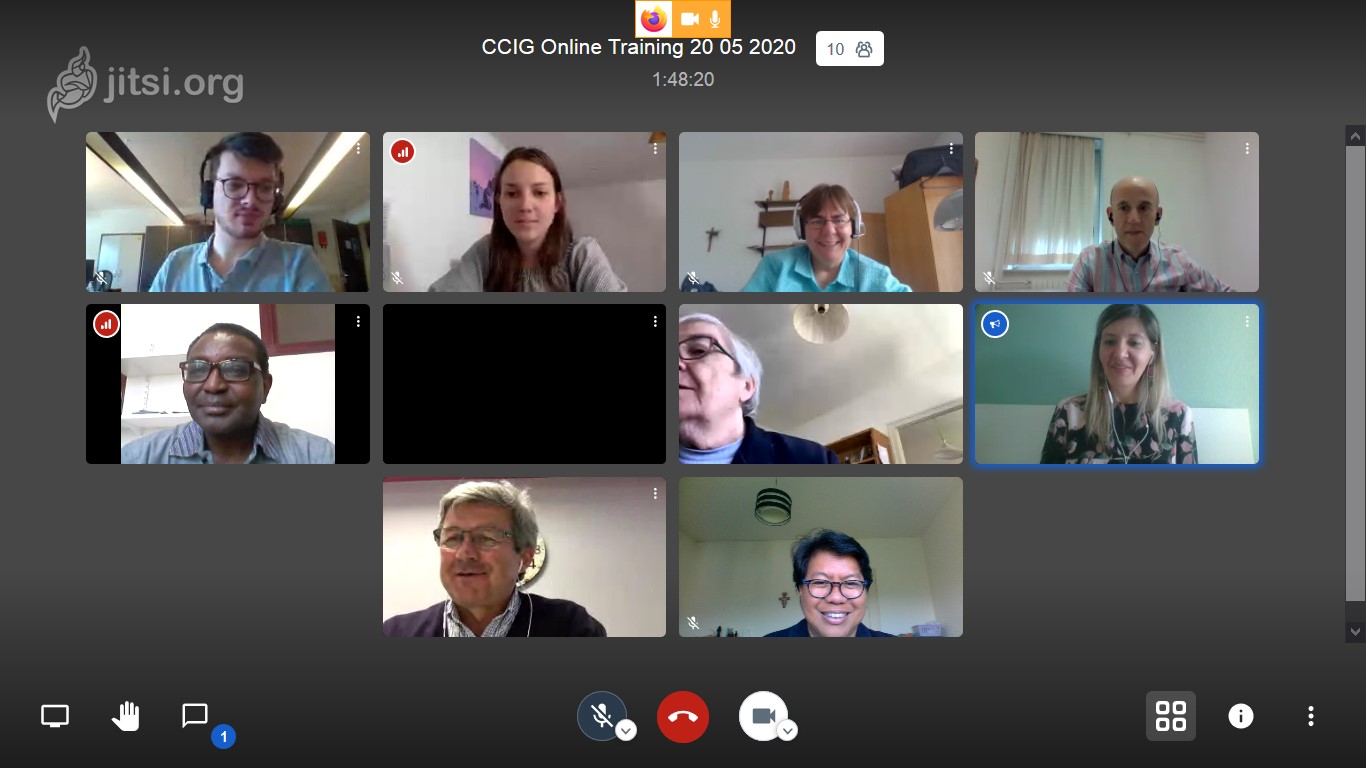
On May 20, 2020, CCIG conducted its first online training session on “How to collect information from local actors/members in order to build up a UPR submission and how to draft the submission.” In fact, the submission to the United Nations of written reports by NGOs highlighting key human rights challenges at the national level represents one of the most effective contributions of the Civil Society to the UN system for the protection of human rights.
The online training has been part of the creative search to continue serving the interests and needs of the CCIG UPR Platform Partners during this time of the pandemic.
 Ms. Maria D’Onofrio, CCIG Secretary General, facilitated the training session. There were twelve participants from 8 NGOs during the said activity.
Ms. Maria D’Onofrio, CCIG Secretary General, facilitated the training session. There were twelve participants from 8 NGOs during the said activity.
Several implications were presented depending if the data-collection and gathering as well as the drafting of the UPR Submission is led by the local actors or by the international NGO representative. In both cases, knowledge of the UPR Mechanism and the tight collaboration between local Civil Society Organizations (CSOs) and international NGOs are very crucial in the crafting of the UPR Submission, ensuring that human rights concerns raised by affected local populations effectively impact recommendations addressed to the Governments concerned by the international community.
Accordingly, basic principles to keep in mind on the process of the UPR Submission are the following: (1) identify human rights issues that one has direct knowledge of, (2) and that need priority action in the country under review, and (3) verify data, sources and figures on the issue(s) raised.
In order to ensure the effectiveness of the submission, it is important to formulate precise and action-oriented, SMART (specific, measurable, achievable, relevant and time-bound), and substantive recommendations.
The CCIG is keen on continuing its efforts to provide capacity building for its partners, by undertaking other training and similar future initiatives.
